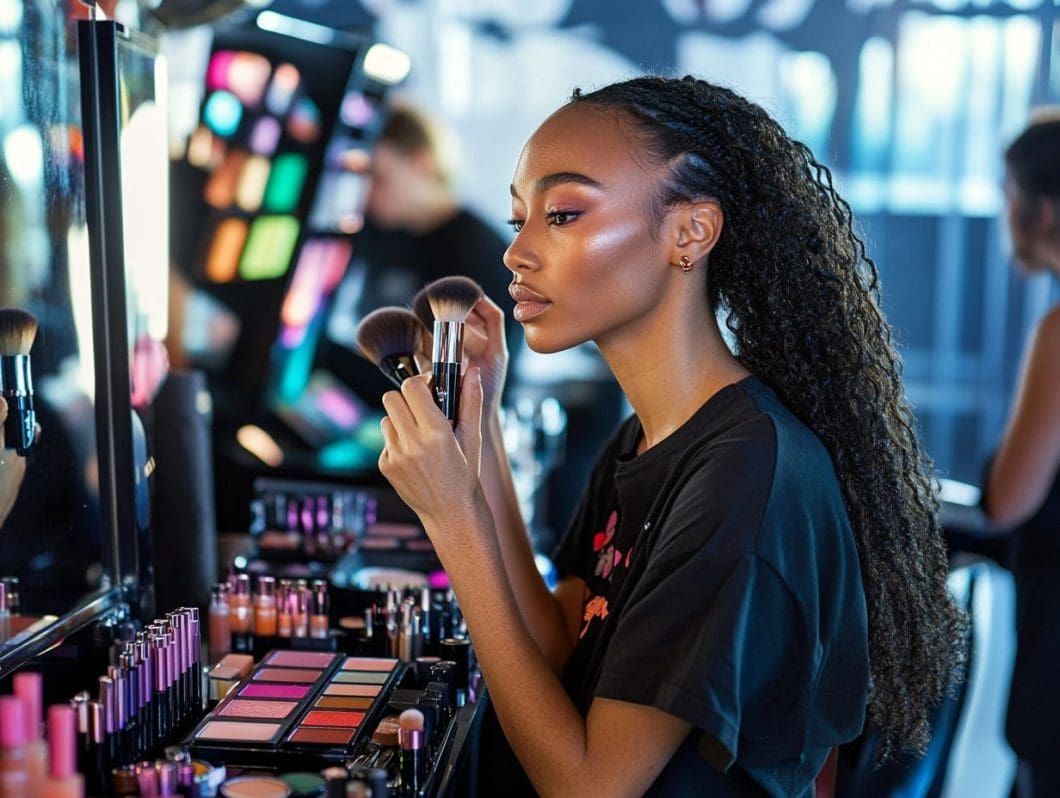Ever wondered what it takes to become a standout makeup artist? This article offers a look into the journey of a renowned professional in the beauty industry.
From their early inspirations and training to the signature styles that set them apart, we explore the unique techniques and tips that define their artistry.
Alongside insights into the challenges they’ve faced and the evolving trends shaping the industry, this piece also provides advice for those looking to carve out their own path in the world of makeup.
Get ready to be inspired!
Table of Contents
Key Takeaways:
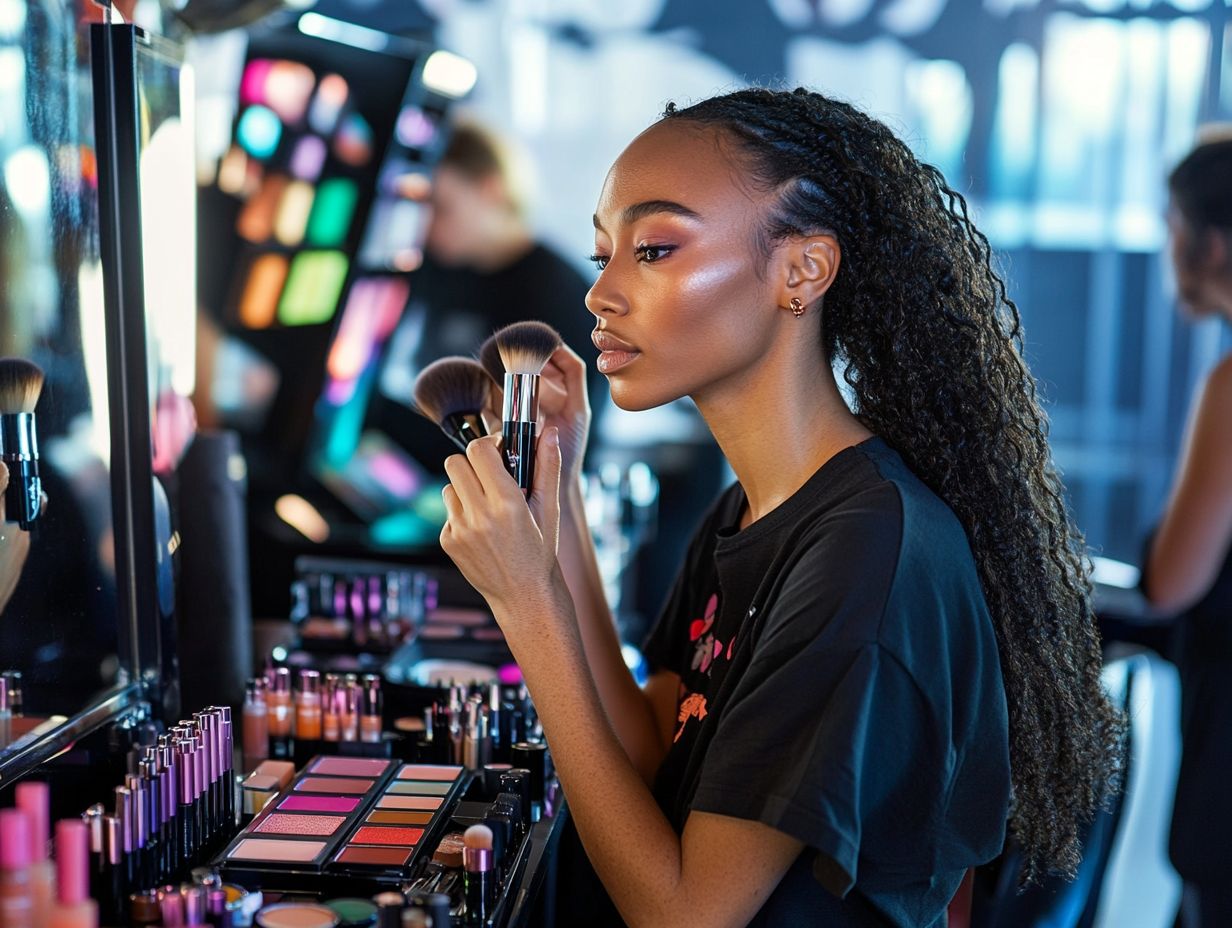
- Discover the power of early influences and training – learn from industry experts and absorb their unique techniques to develop your own signature style.
- Overcome challenges and achieve success by staying determined and persevering in the face of obstacles. Only then can you truly thrive as a makeup artist.
- Stay ahead of industry trends and constantly evolve your skills to stand out in a competitive field. Take inspiration from renowned makeup artists and always be open to learning and adapting.
Background of the Makeup Artist
The background of a makeup artist is critical in comprehending their distinctive approach to makeup artistry and the beauty industry. Professionals such as Nikolas Lemmel, who has collaborated with esteemed beauty brands like Revlon and worked with high-profile clients including Lady Gaga and Lennon Stella, exemplify the varied trajectories one can pursue in this field.
Their paths typically include a mix of formal training, practical experience, and innovative inspirations drawn from prominent fashion events such as New York Fashion Week and Miami Swim Week.
Inspiration and Career Beginnings
Inspiration serves as a fundamental driving force behind the career trajectories of many successful makeup artists. They frequently draw from their experiences within the beauty industry, which may include notable collaborations and challenges encountered in the field.
For example, their journey may commence in a local beauty shop or during a pivotal moment at a fashion show, both of which significantly shape their artistic vision and aesthetic preferences.
Early Influences and Training
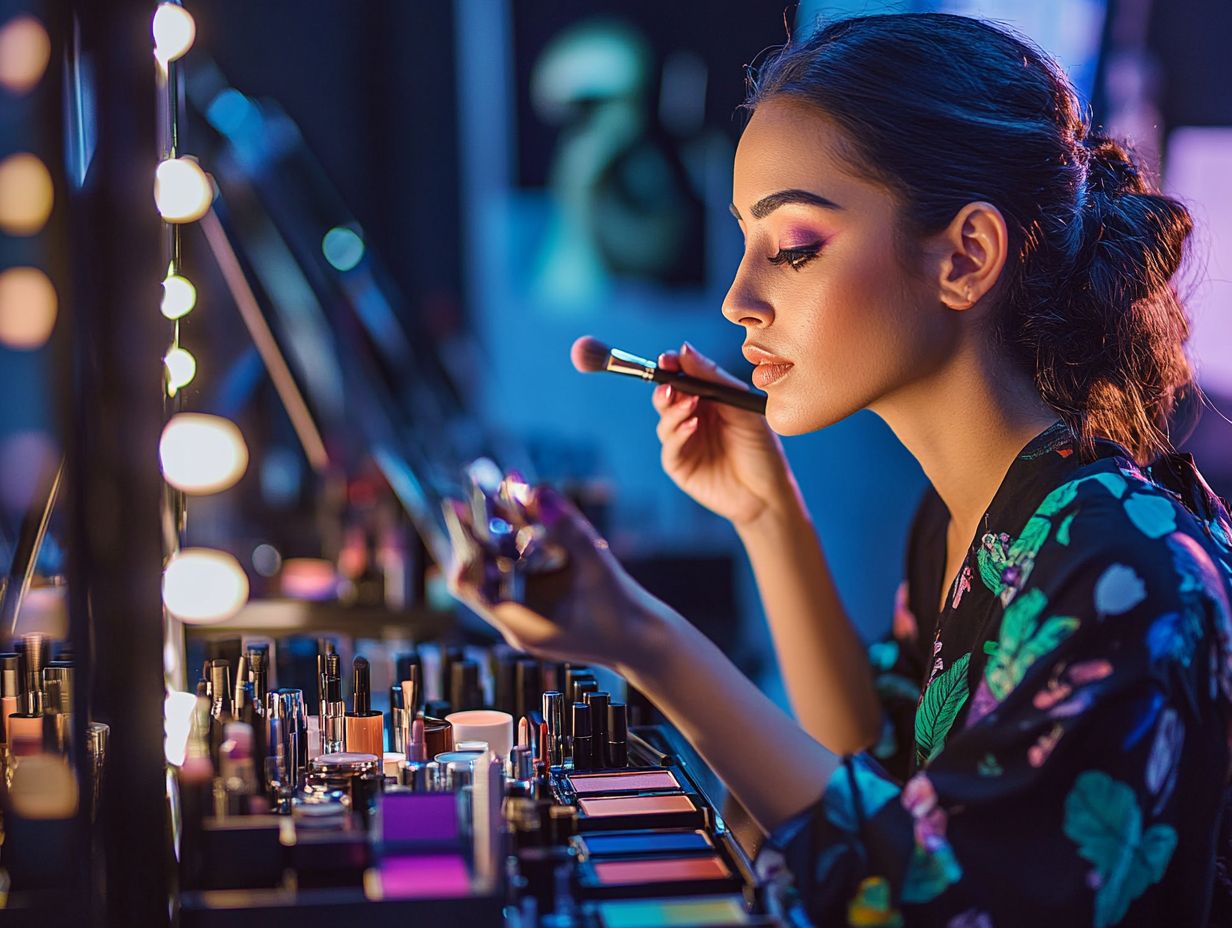
Early influences in a makeup artist’s career are often instrumental in shaping their distinctive style and proficiency in makeup techniques, particularly as they undergo rigorous training programs that encompass a variety of beauty trends and artistic methodologies.
These training pathways include formal education at beauty schools, which typically offer comprehensive courses in makeup application, skincare, and color theory. Such programs provide students with the foundational skills necessary for success in the field. Specialized workshops, led by industry professionals, furnish hands-on experience in areas such as bridal makeup and special effects, thereby fostering creativity and innovative techniques.
Furthermore, aspiring artists can greatly benefit from mentorship opportunities, where they receive guidance directly from seasoned experts. This mentorship imparts insights that may not be available through traditional textbooks and lectures. Collectively, these experiences enhance their portfolios and instill confidence as they embark on their professional journey in the dynamic world of cosmetics.
Signature Style and Techniques
A makeup artist’s signature style and techniques serve as distinguishing factors within the beauty industry, frequently embodying a combination of timeless beauty principles and cutting-edge makeup methods tailored to their celebrity and influencer clientele.
This distinctive approach typically encompasses a meticulously curated makeup kit, which is essential for achieving unique and recognizable looks.
Unique Approaches and Tips
Unique approaches to makeup artistry offer invaluable beauty advice and innovative techniques that resonate with both aspiring artists and everyday enthusiasts seeking to enhance their skincare routines.
By emphasizing texture and skin health, artists can elevate their makeup application while ensuring that the skin remains radiant and nourished. For example, utilizing a hydrating primer can create a smooth canvas, facilitating the effortless application of products.
Blending techniques, such as stippling foundation with a damp sponge, not only provide a natural finish but also allow products to meld seamlessly with the skin rather than merely resting on its surface. Additional tips, such as mixing foundation with a few drops of facial oil, can impart a dewy glow while maintaining moisture balance throughout the day.
Ultimately, the integration of skincare principles into makeup artistry not only enhances the overall aesthetic but also contributes to long-term skin health.
Challenges and Rewards of Being a Makeup Artist
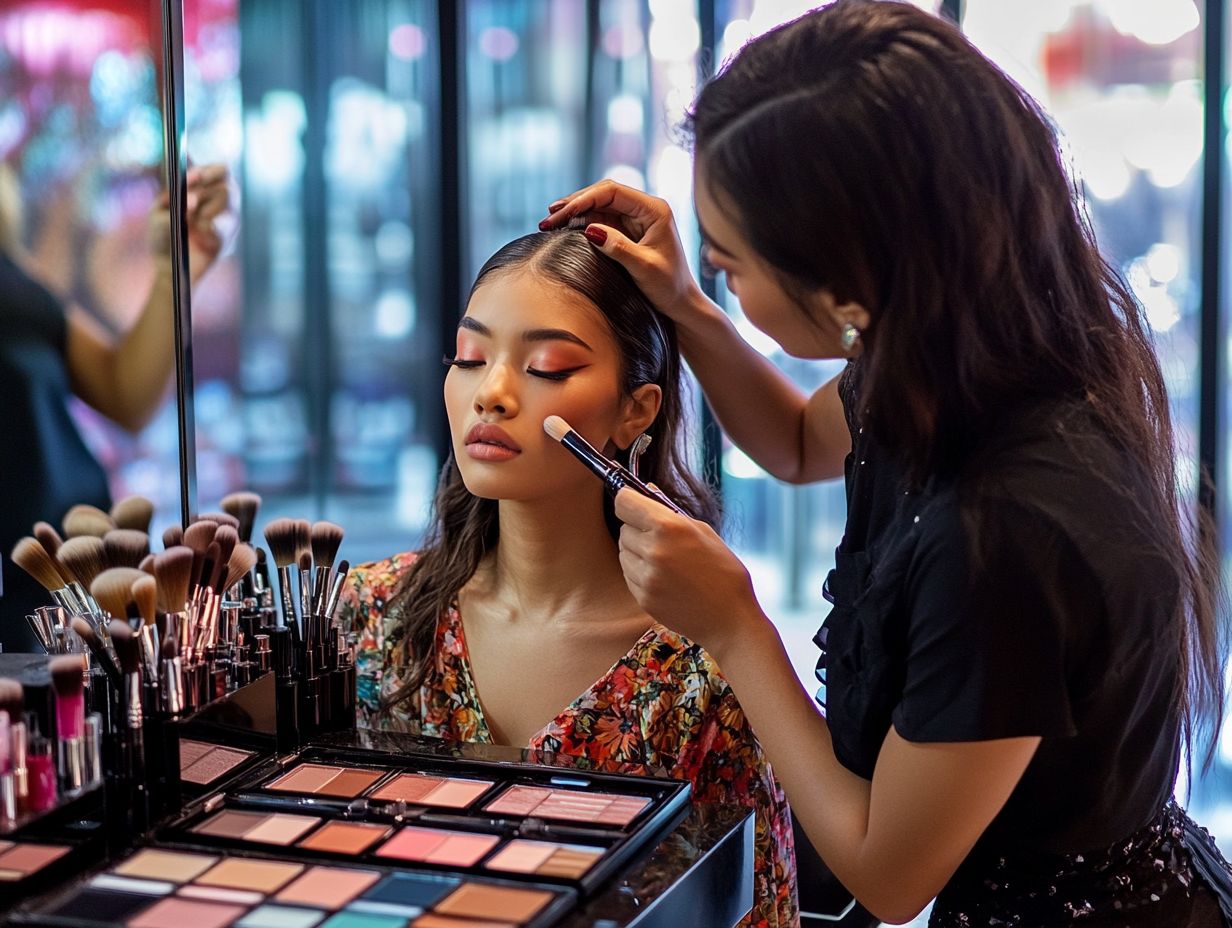
The challenges and rewards of being a makeup artist are inherently linked to the dynamic nature of the beauty industry. Professionals in this field must navigate various industry challenges, including the necessity of staying abreast of evolving beauty trends while simultaneously fostering strong client relationships that contribute to long-term success.
Overcoming Obstacles and Achieving Success
Overcoming obstacles is a critical component of achieving success as a professional makeup artist. It necessitates a strong creative vision and effective professional branding to distinguish oneself in a competitive landscape.
Aspiring artists often encounter challenges, such as establishing a recognizable brand identity and building a reliable network of contacts within the industry. To navigate these hurdles, one effective strategy is to leverage social media platforms for showcasing unique styles and talents. Regularly posting high-quality images of their work, along with behind-the-scenes processes, can attract potential clients and collaborators.
Additionally, attending industry events and workshops provides makeup artists with the opportunity to connect with peers, share experiences, and learn from established professionals. Consistent practice to refine techniques and experimentation with different looks can further enhance an artist’s creative skills, ensuring that they remain relevant and inspiring in their field.
Industry Insights and Trends
Industry insights and trends are essential for makeup artists to maintain relevance in the rapidly evolving beauty sector, particularly during high-profile events such as Fashion Week.
During these occasions, social media significantly influences beauty trends and shapes consumer preferences, making it imperative for professionals to remain informed and adaptable.
Observations and Predictions
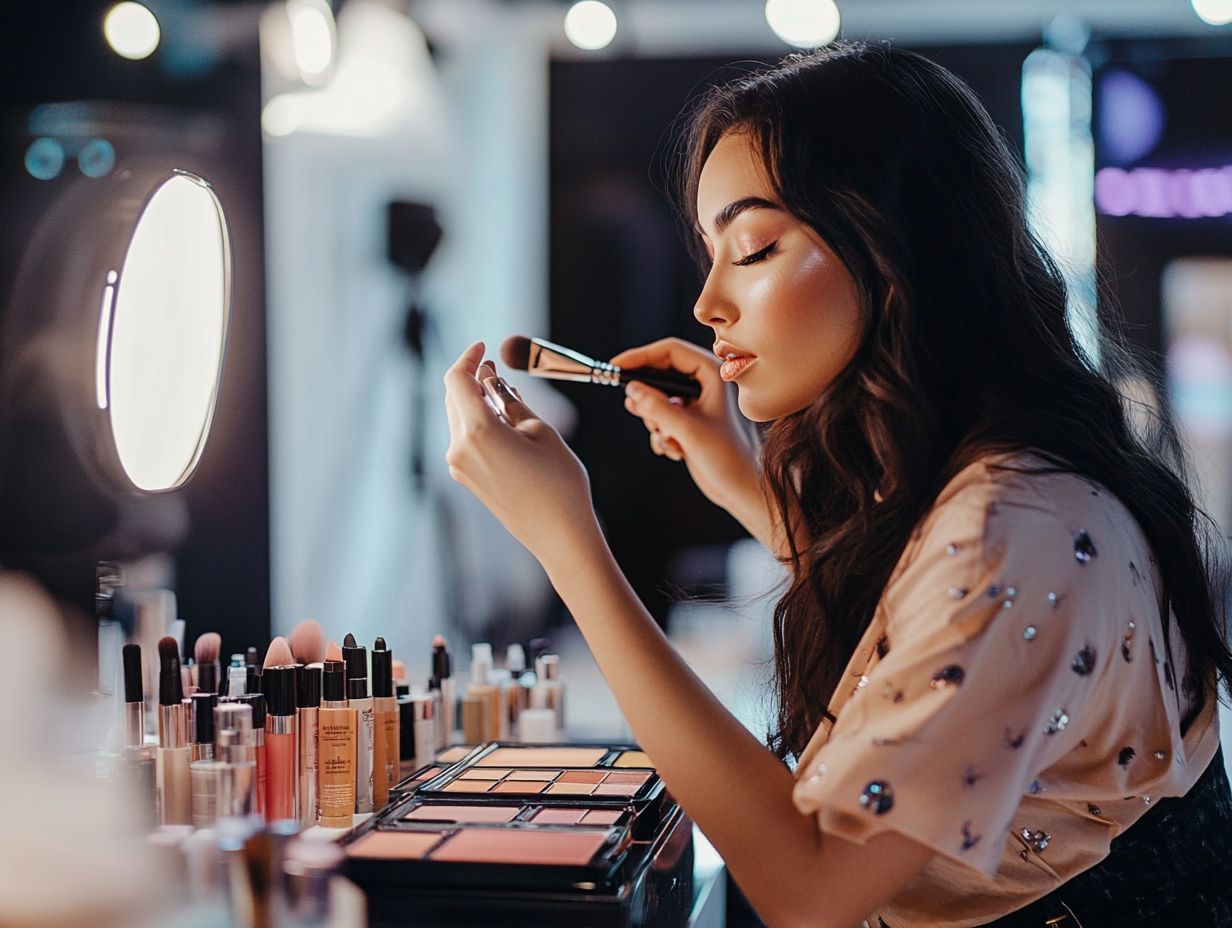
Observations of past and current beauty trends can yield valuable insights for predicting the future of makeup artistry, enabling professionals to adapt their skills and strategies within the continuously evolving beauty industry.
For example, the increasing popularity of clean and sustainable beauty products highlights a growing consumer preference for transparency and environmental responsibility. Experts indicate that makeup artists should familiarize themselves with eco-friendly brands and formulations, as these are expected to dominate the market in the near future.
Furthermore, the heightened emphasis on inclusivity suggests that makeup professionals must expand their palettes to accommodate a broader spectrum of skin tones and textures. As digital platforms increasingly influence consumer behavior, monitoring social media influencers can also provide essential insights into emerging styles, making it crucial for makeup artists to remain connected and adaptable.
Advice for Aspiring Makeup Artists
Guidance for aspiring makeup artists is essential in today’s beauty industry, where a strong understanding of professional branding and the use of resources such as online courses can greatly improve their skills and knowledge of advanced makeup techniques.
Tips for Breaking into the Industry
Breaking into the makeup artistry industry necessitates a blend of skill, dedication, and effective networking, alongside a readiness to absorb beauty insights from experienced professionals.
To make a significant impact, aspiring makeup artists should actively pursue both online and offline networking opportunities. Attending workshops and industry events provides a platform for interaction with peers and established professionals.
Additionally, joining beauty forums or groups on platforms such as Facebook and Instagram can facilitate the development of valuable connections.
Establishing a mentorship can be invaluable; this relationship fosters personal growth and provides practical insights that can accelerate one’s career. Utilizing social media to showcase artistry, engage with followers, and connect with established makeup artists can enhance visibility, thereby simplifying the process of entering this dynamically industry.


